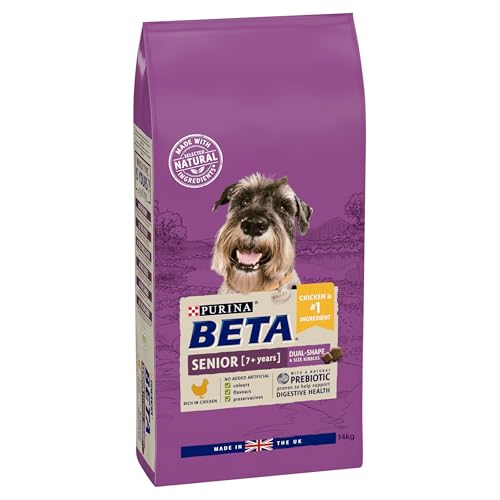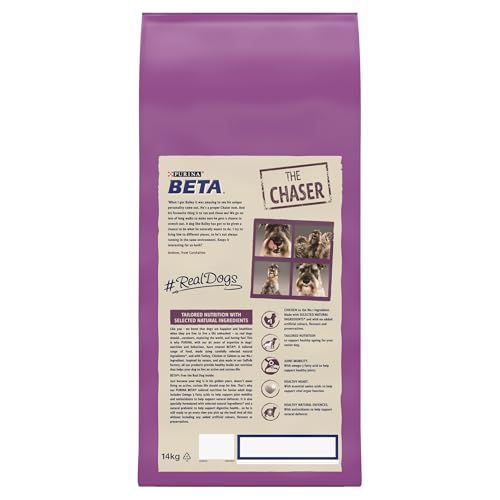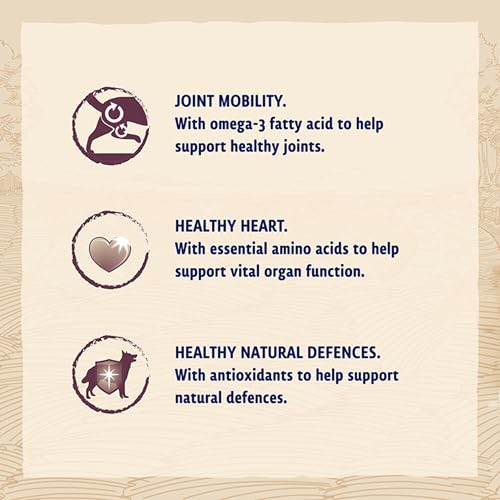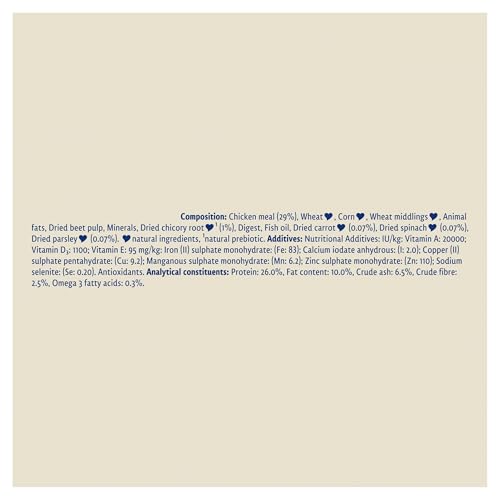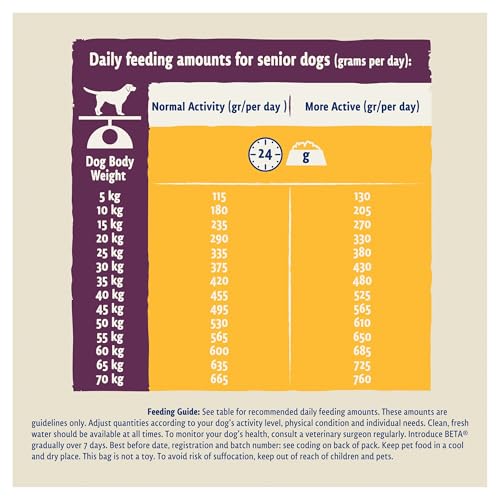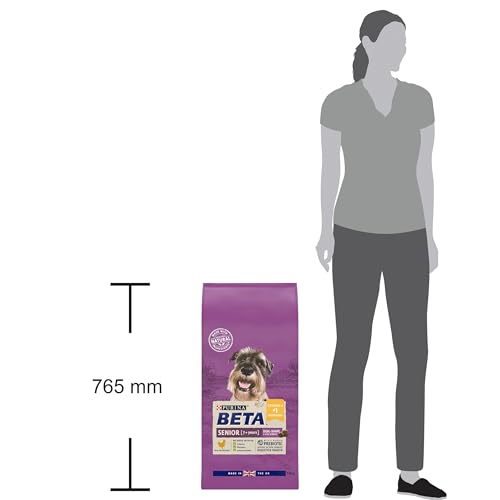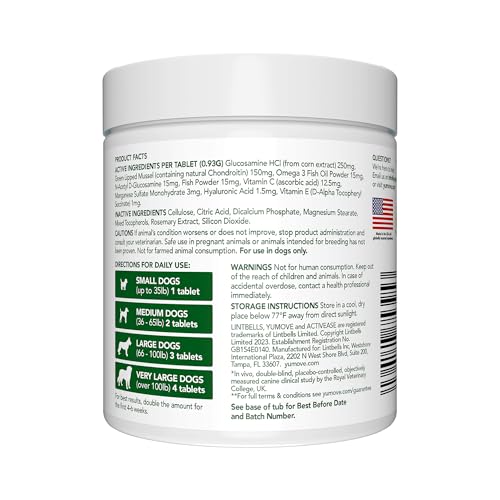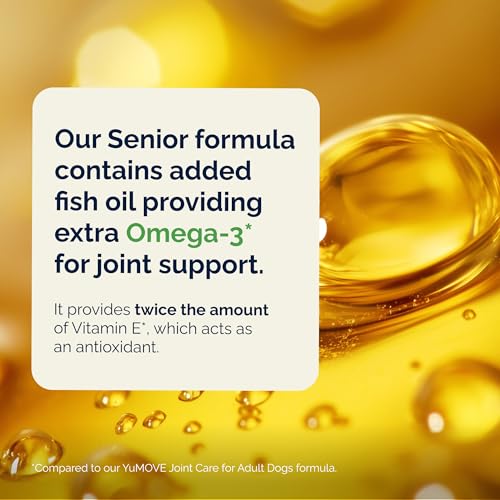
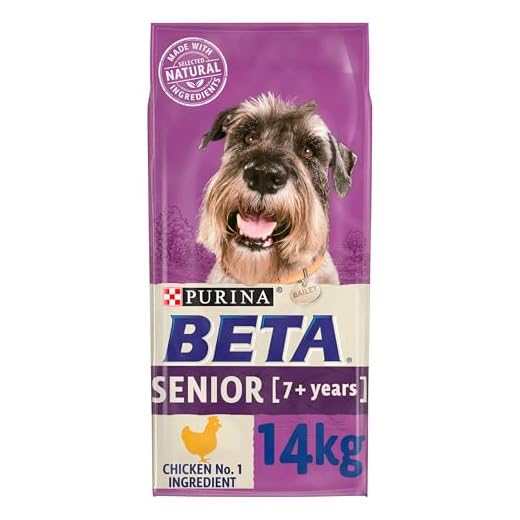



As a devoted owner of an ageing Labrador, I understand the unique challenges and joys that come with caring for our beloved pets in their golden years. Finding the best dog food for old Labradors is not just a matter of preference but a crucial step in ensuring their health and vitality. Over the years, I’ve researched extensively and consulted numerous veterinarians to determine the optimal diet for my ageing friend.
Old Labradors, like my dear companion, have specific nutritional needs that differ significantly from their younger counterparts. Their metabolism slows down, and they may develop conditions such as arthritis, reduced muscle mass, and dental issues. Hence, the right food should be rich in joint-supporting nutrients, easily digestible, and tailored to prevent excessive weight gain. I will share my insights and experiences to help you choose the best dog food that meets these requirements.
In this article, I’ll delve into the key factors to consider when selecting food for your elderly Labrador. From the importance of high-quality protein sources to the benefits of added supplements like glucosamine and chondroitin, we’ll cover everything you need to know. Additionally, I’ll provide some recommendations based on my experiences and those of other Labrador owners, aiming to help you make an informed decision for your furry friend’s diet.
Ultimately, the goal is to ensure our old Labradors enjoy their twilight years with as much health and happiness as possible. By choosing the best dog food, we can support their ageing bodies and continue to share many more joyful moments together. Let’s explore the best options available and find the perfect diet for our loyal companions.
Understanding the Nutritional Needs of Senior Labradors
As our beloved Labradors age, their dietary requirements evolve significantly. I’ve noticed that my older Labrador requires a different balance of nutrients compared to his younger years. This change is crucial to support his overall health, manage his weight, and keep him active and happy in his senior years.
One of the most important aspects to consider is the protein content in his food. Senior Labradors need high-quality protein to maintain muscle mass, which tends to decrease with age. I make sure that the dog food I choose has a rich protein source, such as chicken or fish, to help keep his muscles strong and healthy.
Essential Nutrients for Older Labradors
Aside from protein, there are several other key nutrients that are vital for the well-being of a senior Labrador:
- Omega-3 Fatty Acids: These are essential for joint health and can help reduce inflammation, which is common in older dogs. Foods with fish oil or flaxseed are excellent sources.
- Antioxidants: Antioxidants like vitamins E and C support the immune system, helping to combat the effects of aging and prevent diseases.
- Fibre: A higher fibre content aids in digestion and helps maintain a healthy weight by providing a sense of fullness without extra calories.
- Glucosamine and Chondroitin: These supplements are crucial for maintaining joint health and mobility, which is particularly important for larger breeds like Labradors.
- Low Calories: Older dogs are often less active, so their food should be lower in calories to prevent weight gain, which can exacerbate joint issues and other health problems.
When selecting the right food for my senior Labrador, I always check the ingredient list to ensure it includes these essential nutrients. It’s also beneficial to consult with a veterinarian to tailor a diet specific to my dog’s health needs. By understanding and meeting the nutritional needs of my senior Labrador, I can help ensure that he remains healthy and enjoys a good quality of life well into his golden years.
Essential Ingredients for Senior Dog Food
As our beloved Labradors age, their nutritional needs change, requiring a diet tailored to support their ageing bodies. Selecting the right food for senior dogs can make a significant difference in their health and longevity. Understanding the key ingredients that benefit older Labradors can help us make informed decisions to ensure they live their golden years comfortably and happily.
When evaluating senior dog food, it’s crucial to look beyond the marketing labels and focus on the specific nutrients that promote joint health, cognitive function, and overall vitality. Here’s what to prioritise in the ingredient list:
Nutrients for Joint Health
- Glucosamine and Chondroitin: These are vital for maintaining healthy joints and cartilage. They can help alleviate the symptoms of arthritis, which is common in older Labradors.
- Omega-3 Fatty Acids: Ingredients like fish oil and flaxseed are excellent sources. They have anti-inflammatory properties that support joint health and mobility.
Ingredients Supporting Cognitive Function
- Antioxidants: Vitamins E and C, along with fruits like blueberries and cranberries, are crucial for combating oxidative stress, which can affect brain health.
- DHA and EPA: These fatty acids, commonly found in fish oil, are essential for maintaining cognitive function and overall brain health in senior dogs.
Protein and Digestive Health
- High-Quality Protein: Lean meats such as chicken, turkey, and fish are important for maintaining muscle mass. Older Labradors need sufficient protein to prevent muscle loss.
- Fibre: Ingredients like sweet potatoes, pumpkin, and brown rice aid in digestion and help maintain a healthy weight by providing a sense of fullness without extra calories.
In summary, focusing on these specific ingredients can help ensure that our ageing Labradors receive the nutrition they need to stay active and healthy. Regular consultation with a veterinarian can also provide personalised advice to meet the unique needs of our senior dogs.
Why High-Quality Protein is Essential for Older Labradors
As our loyal Labrador companions age, their dietary needs evolve significantly. One of the most crucial aspects of their diet is the inclusion of high-quality protein. This nutrient is fundamental to maintaining their overall health and vitality, helping to manage the changes that come with ageing.
High-quality protein plays a pivotal role in sustaining muscle mass in older Labradors. With age, dogs naturally lose muscle mass, which can lead to a decline in mobility and strength. Ensuring that their diet includes sufficient, high-grade protein helps to mitigate this muscle loss, promoting better mobility and a more active lifestyle even in their senior years.
The Benefits of High-Quality Protein for Senior Labradors
There are several specific reasons why high-quality protein is indispensable for older Labradors:
- Muscle Maintenance: As Labradors age, maintaining muscle mass becomes increasingly important to support their joints and overall mobility. High-quality protein provides the essential amino acids needed for muscle repair and growth.
- Immune System Support: Older dogs often have weakened immune systems. Quality protein sources bolster immune function, helping to protect them from infections and illnesses.
- Energy Levels: While older dogs may not be as energetic as their younger counterparts, they still need adequate energy to enjoy their daily activities. Protein is a crucial energy source that helps maintain their enthusiasm and vitality.
- Weight Management: High-quality protein can help older Labradors maintain a healthy weight by promoting satiety and reducing the likelihood of overeating. This is particularly important as obesity can exacerbate age-related health issues.
In conclusion, integrating high-quality protein into the diet of an ageing Labrador is essential for their health and well-being. It supports muscle maintenance, boosts immune function, sustains energy levels, and aids in weight management. As we strive to give our senior Labradors the best care possible, focusing on high-quality protein in their diet is a critical step.
The Importance of Joint Supplements in Diets for Elderly Labradors
As my Labrador ages, I’ve become increasingly aware of the significance of joint supplements in his diet. Senior Labradors are particularly prone to joint issues, including arthritis and hip dysplasia, which can severely impact their mobility and quality of life. Providing the right nutrients to support their joints is crucial for maintaining their health and happiness.
Joint supplements are essential because they provide specific nutrients that may not be sufficiently available in regular dog food. Ingredients such as glucosamine, chondroitin, and omega-3 fatty acids play a pivotal role in maintaining joint health. These components help to repair cartilage, reduce inflammation, and improve overall joint function, making a noticeable difference in an elderly dog’s comfort and mobility.
Key Ingredients in Joint Supplements
Understanding what to look for in joint supplements can make a significant difference in choosing the right product for my senior Labrador.
- Glucosamine: This amino sugar is essential for the repair and maintenance of cartilage. It helps to keep the joints lubricated and can alleviate pain associated with arthritis.
- Chondroitin: Often paired with glucosamine, chondroitin helps to prevent the breakdown of cartilage and promotes its repair. It also has anti-inflammatory properties.
- Omega-3 Fatty Acids: Found in fish oil, these fatty acids have potent anti-inflammatory effects that can help reduce joint pain and swelling.
- MSM (Methylsulfonylmethane): This organic compound has been shown to reduce inflammation and pain, improving joint function and flexibility.
Integrating these supplements into my dog’s diet can be done through various forms, such as chewable tablets, powders, or even as part of specialised senior dog foods that include these nutrients. It’s important to consult with a veterinarian to determine the best approach and dosage for my Labrador’s specific needs.
By prioritising joint health through targeted supplements, I can help ensure that my elderly Labrador continues to enjoy a good quality of life, with less pain and greater mobility. This proactive approach to his diet not only supports his joints but also contributes to his overall wellbeing as he ages gracefully.
Grain-Free vs. Grain-Inclusive: Which is Better for Senior Labradors?
As my Labrador ages, I find myself more concerned about his diet and overall health. One of the big questions I’ve faced is whether to feed him grain-free or grain-inclusive food. Both options have their advocates, and each has its unique benefits and potential drawbacks. Understanding these can help me make an informed decision for my furry companion.
Grain-free diets have gained popularity in recent years, especially among pet owners who believe that grains might be linked to allergies or intolerances in dogs. These diets often substitute grains with alternative sources of carbohydrates such as sweet potatoes, peas, and lentils. While these ingredients can be beneficial, it’s important to consider that not all senior Labradors require a grain-free diet unless they have specific sensitivities or allergies.
Benefits and Considerations
Grain-Free Diets
- Allergy Management: If my senior Labrador has shown signs of grain allergies, such as skin irritations or digestive issues, a grain-free diet might alleviate these symptoms.
- High-Quality Ingredients: Many grain-free dog foods are made with high-quality protein sources and fewer fillers, which can be beneficial for my dog’s overall health.
- Weight Management: Some grain-free formulas are designed to be lower in carbohydrates, which might help with weight management, a common concern for older Labradors.
Grain-Inclusive Diets
- Balanced Nutrition: Grains like brown rice and oats provide essential nutrients and fibre that can aid in digestion and contribute to a well-rounded diet.
- Energy Levels: For senior Labradors that still maintain an active lifestyle, grains can provide a steady source of energy, helping them stay active and engaged.
- Cost-Effective: Often, grain-inclusive diets are more affordable, making it easier to provide a balanced diet without breaking the bank.
When choosing between grain-free and grain-inclusive options, it’s essential to consider my dog’s specific needs. Consulting with a veterinarian can provide tailored advice based on my Labrador’s health profile. Ultimately, the best diet is one that keeps my senior Labrador healthy, happy, and energetic in his golden years.
Top Brands Offering the Best Dog Food for Senior Labradors
Caring for an ageing Labrador involves paying extra attention to their diet. As these loyal companions grow older, their nutritional needs change, requiring food that supports their joint health, digestive system, and overall vitality. In my search for the best options, I’ve discovered several brands that provide excellent formulations tailored specifically for senior Labradors.
These brands are renowned for their high-quality ingredients, scientific approach, and commitment to enhancing the health and well-being of older dogs. Let me share with you some of the standout names that have consistently impressed both pet owners and veterinarians alike.
Recommended Brands for Senior Labrador Nutrition
- Royal Canin: Known for their breed-specific formulations, Royal Canin offers a senior diet that caters to the unique needs of older Labradors. Their blend includes nutrients that support joint health, maintain muscle mass, and promote a healthy digestive system.
- Hill’s Science Diet: This brand is a favourite among many veterinarians. Their senior dog food range is crafted with an optimal balance of nutrients, including antioxidants and vitamins, which are essential for supporting the immune system and promoting healthy ageing.
- Blue Buffalo: Blue Buffalo’s senior formulas are packed with high-quality protein and LifeSource Bits–a precise blend of antioxidants, vitamins, and minerals. This helps in maintaining a healthy weight and supporting joint function.
- Wellness Complete Health: Wellness provides a natural approach with their senior dog food, featuring ingredients that boost energy, support healthy skin and coat, and enhance overall vitality. Their recipes often include glucosamine and chondroitin for joint health.
- Merrick Grain-Free Senior: For Labradors that may have grain sensitivities, Merrick offers a grain-free option rich in protein and healthy fats. Their recipes are designed to promote lean muscle, healthy joints, and overall wellness without compromising on taste.
Each of these brands brings something unique to the table, but they all share a common goal: providing the best possible nutrition for senior Labradors. By choosing any of these trusted names, you can ensure that your older furry friend remains happy, healthy, and full of life.
Homemade Dog Food Recipes for Senior Labradors
As my Labrador has aged, I’ve become increasingly aware of the importance of a balanced diet tailored to her specific needs. Creating homemade meals allows me to ensure she gets the best nutrition possible, with fresh ingredients and no unnecessary additives. It’s been a rewarding journey seeing her health and vitality improve.
Senior Labradors, like all older dogs, often require diets that support joint health, maintain a healthy weight, and address any age-related conditions. By preparing her meals at home, I can adjust ingredients to meet her changing needs, ensuring she enjoys her food and thrives in her golden years.
Essential Ingredients for Senior Labradors
- Lean Proteins: Chicken, turkey, and lean beef are excellent sources of protein that help maintain muscle mass.
- Healthy Fats: Salmon oil or flaxseed oil provides essential omega-3 fatty acids, which are beneficial for joint health and coat condition.
- Whole Grains: Brown rice, quinoa, and oats are great sources of fibre and help in maintaining digestive health.
- Vegetables: Carrots, spinach, and sweet potatoes offer vitamins, minerals, and antioxidants.
- Supplements: Adding glucosamine and chondroitin can support joint health, while probiotics can aid digestion.
Simple Homemade Dog Food Recipe
Here’s a straightforward recipe I frequently prepare for my Labrador:
- Cook 2 cups of brown rice as per the package instructions.
- In a large pan, brown 1.5 pounds of ground turkey until fully cooked.
- Add 1 cup of chopped spinach, 1 grated carrot, and 1/2 cup of peas to the pan. Cook until vegetables are tender.
- Mix the cooked rice into the pan with the meat and vegetables.
- Let the mixture cool, then stir in 1 tablespoon of fish oil for added omega-3 fatty acids.
This recipe provides a balanced meal packed with protein, vitamins, and healthy fats. I store it in the refrigerator and serve it to my Labrador over the next few days, knowing she’s getting fresh, nutritious food.
Adjusting Recipes for Individual Needs
Every senior Labrador has unique dietary needs based on their health conditions and activity level. For instance, if your dog needs to lose weight, you might reduce the amount of rice and increase the vegetables. For those with arthritis, more omega-3-rich oils and joint supplements could be beneficial. Always consult with your vet to tailor the diet specifically to your dog’s requirements.
Making homemade food for your senior Labrador can be a delightful way to ensure they stay healthy and happy. It requires a bit more effort, but the results are well worth it. Watching my Labrador enjoy her meals and stay energetic as she ages has made every moment in the kitchen worthwhile.
Transitioning Your Labrador to Senior Dog Food
As my beloved Labrador enters his golden years, I’m keenly aware of the importance of providing him with the right nutrition to support his aging body. One crucial step in this process is transitioning him from his regular adult dog food to a senior formula specifically designed to meet his changing needs.
Before making any changes to my Labrador’s diet, I consult with his veterinarian to ensure that the transition is smooth and tailored to his individual health requirements. Together, we develop a plan that takes into account factors such as his current health status, activity level, and any dietary sensitivities he may have.
Gradual Transition:
- To ease the transition, I gradually introduce the new senior dog food into my Labrador’s diet over the course of about a week.
- Each day, I mix a small portion of the senior formula with his regular food, gradually increasing the proportion of the new food while decreasing the amount of the old.
- This slow transition helps prevent digestive upset and allows my Labrador’s system to adapt to the new food more comfortably.
Observing Changes:
- During the transition period, I closely monitor my Labrador for any signs of discomfort or adverse reactions to the new food.
- I pay attention to his energy levels, coat condition, and overall well-being to ensure that the senior formula is providing him with the nutrients he needs.
- If I notice any issues or concerns, I promptly consult with his veterinarian to adjust his diet accordingly.
Common Dietary Mistakes to Avoid with Senior Labradors
As a devoted owner of an aging Labrador, I’ve learned through experience that their nutritional needs change over time. Here are some key dietary mistakes to steer clear of when catering to your senior Labrador’s diet.
Firstly, avoid overfeeding. It’s easy to fall into the trap of thinking your older Labrador needs more food to maintain their energy levels, but overfeeding can lead to obesity and related health issues. Stick to a portion-controlled diet tailored to your dog’s age, weight, and activity level.
- Excessive treats: While it’s tempting to shower your senior Labrador with treats, too many can contribute to weight gain and digestive problems. Opt for low-calorie, senior-specific treats sparingly.
- Ignoring dental health: Dental issues become more prevalent in older dogs. Neglecting dental care can lead to pain while eating and overall discomfort. Incorporate dental chews or add dental health supplements to their diet to maintain oral hygiene.
- Insufficient hydration: Senior Labradors are more prone to dehydration, especially if they have underlying health issues. Always ensure they have access to fresh water throughout the day, and consider adding moisture-rich foods like wet dog food or broth to their meals.
- Unbalanced diet: Aging dogs require a balanced diet to support their changing nutritional needs. Ensure their food provides adequate levels of protein, vitamins, and minerals suitable for senior dogs. Consider consulting with a veterinarian or canine nutritionist to tailor a diet plan specific to your Labrador’s requirements.
Expert Tips for Maintaining a Healthy Diet for Your Senior Labrador
As your Labrador reaches its golden years, it becomes even more crucial to ensure they maintain a healthy diet to support their aging bodies. Here are some expert tips to help you navigate feeding your senior Labrador:
1. Monitor Portion Sizes
As your Labrador ages, their activity levels may decrease, making them prone to weight gain. Monitor their portion sizes carefully and adjust as needed to prevent obesity, which can exacerbate age-related health issues.
2. Choose Nutrient-Rich Foods
Opt for high-quality dog food formulated specifically for senior dogs. Look for options that are rich in nutrients such as protein, glucosamine, omega-3 fatty acids, and antioxidants to support joint health, coat condition, and overall vitality.
3. Consider Supplemental Support
Consult with your veterinarian about adding supplements to your senior Labrador’s diet, such as glucosamine or fish oil, to support joint health and cognitive function. However, always follow your vet’s recommendations regarding dosage and suitability for your dog.
4. Provide Adequate Hydration
Ensure your senior Labrador has access to fresh, clean water at all times. Aging dogs may be more prone to dehydration, so encourage regular water intake, especially during hot weather or after physical activity.
5. Schedule Regular Veterinary Check-ups
Regular veterinary check-ups are essential for monitoring your senior Labrador’s overall health, including their dietary needs. Your vet can provide personalized recommendations based on your dog’s age, weight, activity level, and any health concerns.
By following these expert tips and staying attuned to your senior Labrador’s changing needs, you can help them enjoy a healthy and fulfilling life well into their golden years.
Best Dog Food For Old Labradors
Features
| Part Number | 3182550715645 |
| Model | 3182550715645 |
| Color | Black |
| Size | 12 kg (Pack of 1) |
| Price history for Royal Canin Labrador Retriever 12kg Dog Food | |
|---|---|
|
Latest updates:
|
|
Features
| Part Number | 12231689 |
| Model | 12531980 |
| Color | transparent |
| Release Date | 2014-05-23T00:00:01Z |
| Size | 1 count (Pack of 1) |
Features
| Size | 24 kg (Pack of 1) |
| Price history for Royal Canin Labrador Adult Food Bundle 24kg | |
|---|---|
|
Latest updates:
|
|
Features
| Part Number | YMS120 |
| Model | YMS120 |
| Warranty | 2 year Manfacturer |
| Color | White |
| Size | 120 Tablets |
Features
| Part Number | 8710255168937 |
| Model | Lamb & Rice 12KG |
| Size | 12 kg (Pack of 1) |
| Language | English |
| Price history for Eukanuba Senior Dry Dog Food 12kg | |
|---|---|
|
Latest updates:
|
|
Features
| Part Number | HARRGFSC-12 |
| Model | HARRGFSC-12 |
| Release Date | 2024-01-01T00:00:01Z |
| Size | 12 kg (Pack of 1) |
| Price history for Harringtons Grain Free Dog Food 12kg | |
|---|---|
|
Latest updates:
|
|
Features
| Part Number | 81378294 |
| Model | Labrador Dog Food 12KG |
| Color | red |
| Is Adult Product | |
| Release Date | 2011-02-22T00:00:01Z |
| Size | 12 kg (Pack of 1) |
| Language | Italian |
Q&A:
What should I consider when choosing food for my elderly Labrador?
When selecting food for your older Labrador, it’s crucial to look for formulas designed for senior dogs. These typically contain fewer calories to accommodate their lower activity levels and may include joint-supporting ingredients like glucosamine and chondroitin.
Are there any specific nutrients that are important for the health of old Labradors?
Absolutely. Essential nutrients such as omega-3 fatty acids, vitamins E and C, and antioxidants are vital for supporting the aging Labrador’s overall health, particularly their joint function and cognitive abilities.
Should I consider a grain-free diet for my senior Labrador?
While some dogs may benefit from grain-free diets, it’s not a necessity for all senior Labradors. Consult with your veterinarian to determine if your dog has any specific dietary sensitivities or conditions that warrant a grain-free approach.
How can I tell if the food I’m choosing is suitable for my aging Labrador?
Look for labels indicating the food is formulated for senior dogs. Additionally, check for ingredients like glucosamine and chondroitin for joint health and controlled levels of fat to manage weight, as well as consulting with your vet for personalized recommendations.





